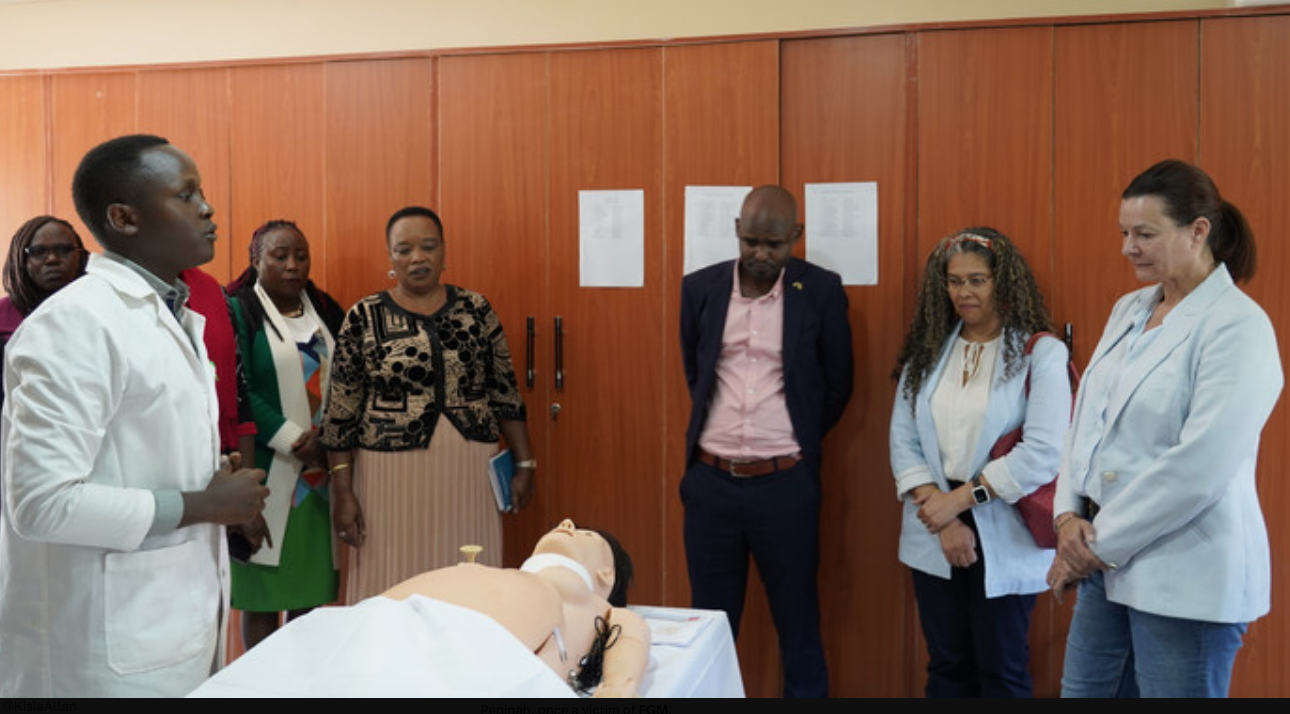

British Deputy High Commissioner and Development Director, Leigh Stubblefield on Thursday visited the first Female Genital Mutilation (FGM) prevention model health facility in Africa.
Nairegie Ekare Level IV Hospital in Suswa, Narok County is a UK-supported facility established by the Africa Coordination Centre for Abandonment of Female Genital Mutilation.
Stubblefield visited the facility during celebrations to mark International Day of Zero Tolerance for Female Genital Mutilation.
"FGM is one of the most extreme manifestations of gender-based violence. FGM is a human rights violation that can result in a lifetime of physical, psychological and emotional suffering,” Stubblefield said.
She said the fight faces emerging challenges, such as the growing medicalisation of FGM, which is when the cut is undertaken by healthcare providers.
“I am pleased to see the medical personnel at Nairegie Ekare Hospital actively raising awareness against this trend, which remains unsafe and a grave violation of the rights of women and girls. There is no medical justification for FGM, and the UK remains committed to ending it, today and every day,” she added.
The British High Commission team saw how the UK government funding through The Girl Generation Programme and Narok County has integrated FGM prevention and care services into routine clinical services.
The team also met medical students from Egerton University trained through the ACCAF curriculum under The Girl Generation Programme.
The students are benefitting from the UK-funded skills lab equipment, apprenticeship from trained staff and hands-on experience.
The students are now more knowledgeable and confident in speaking about the dangers of FGM in addition to providing improved physical and mental care for the wellbeing of women and girls, the British High Commission said.
A health expert and Associate Professor at ACCAF Samuel Kimani said they noticed there was no standardised curriculum used to train medical students as well as no facility that provides skills to prevent and respond to FGM.
“As a result, we engaged the health professionals and bodies to develop a curriculum, which has so far been used to train 209 lecturers,” Kimani said.
The Medical Superintendent for Nairegie Ekare Hospital Siyadi Suleiman said integrating FGM into maternal health education at our service delivery points has significantly increased community awareness.
The British High Commission team also interacted with anti-FGM school clubs at St Anthony’s Girls’ and Boys’ High School.
The clubs supported through the UK’s partnership with AMREF run initiatives like skits and art sessions in the school and the wider community to raise awareness of the risks of FGM.
The clubs have empowered boys and girls in the area to say no to FGM and challenge the entrenched social norms that perpetuate gender-based violence.






![[PHOTOS] Gachagua warm reception in Nyandarua](/_next/image?url=https%3A%2F%2Fcdn.radioafrica.digital%2Fimage%2F2025%2F04%2Fc2a8c64d-5577-4768-a0ac-513c8876c288.jpeg&w=3840&q=100)






